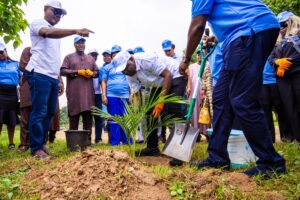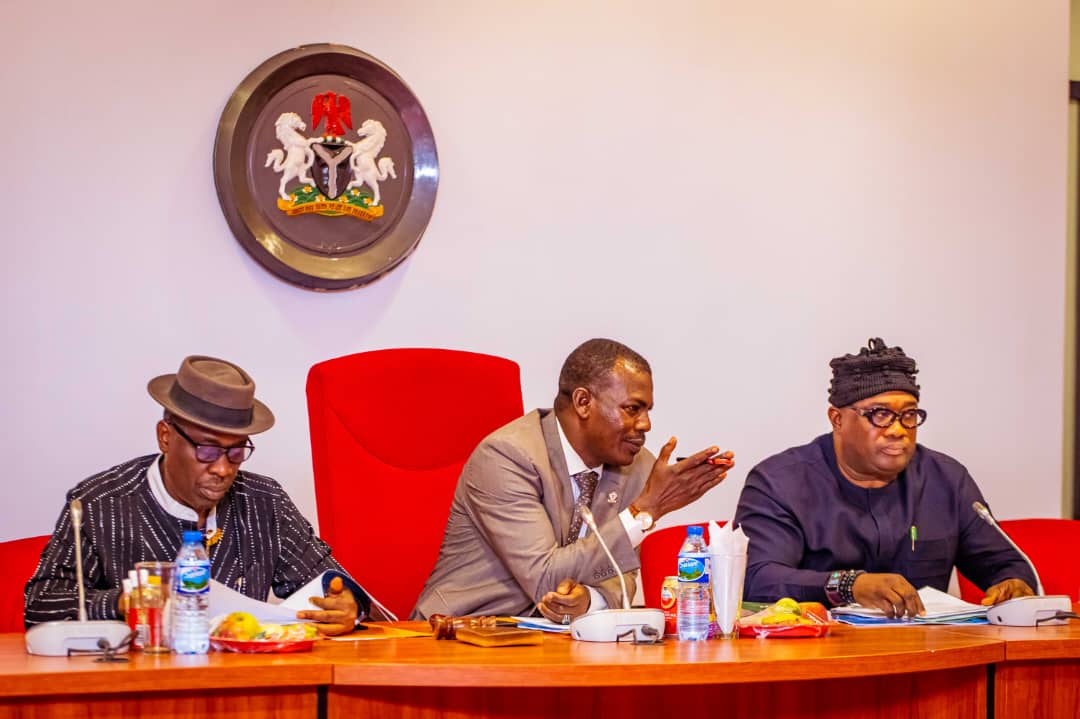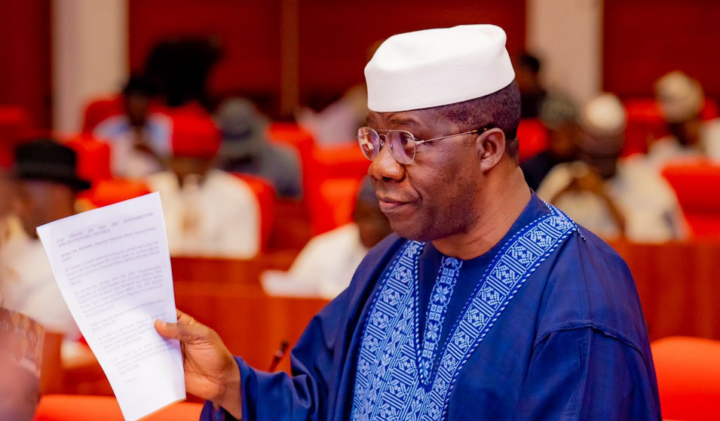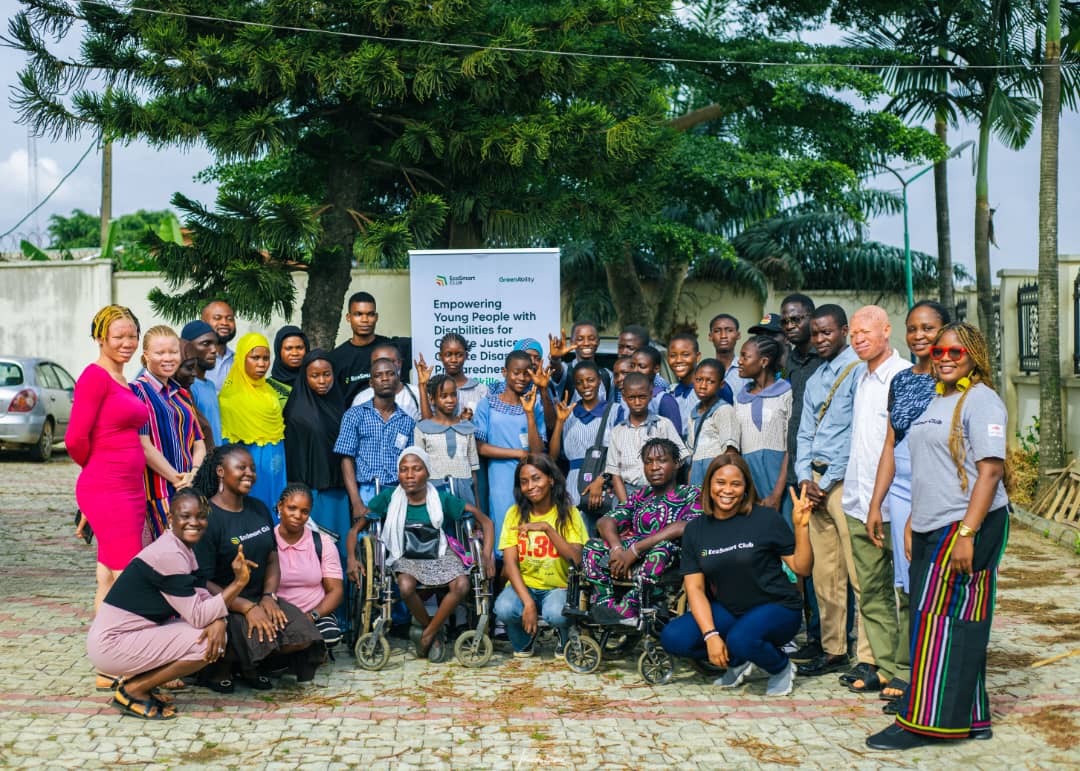World Rivers Day: Water Minister Urges States along Banks of River Benue to Stay Alert
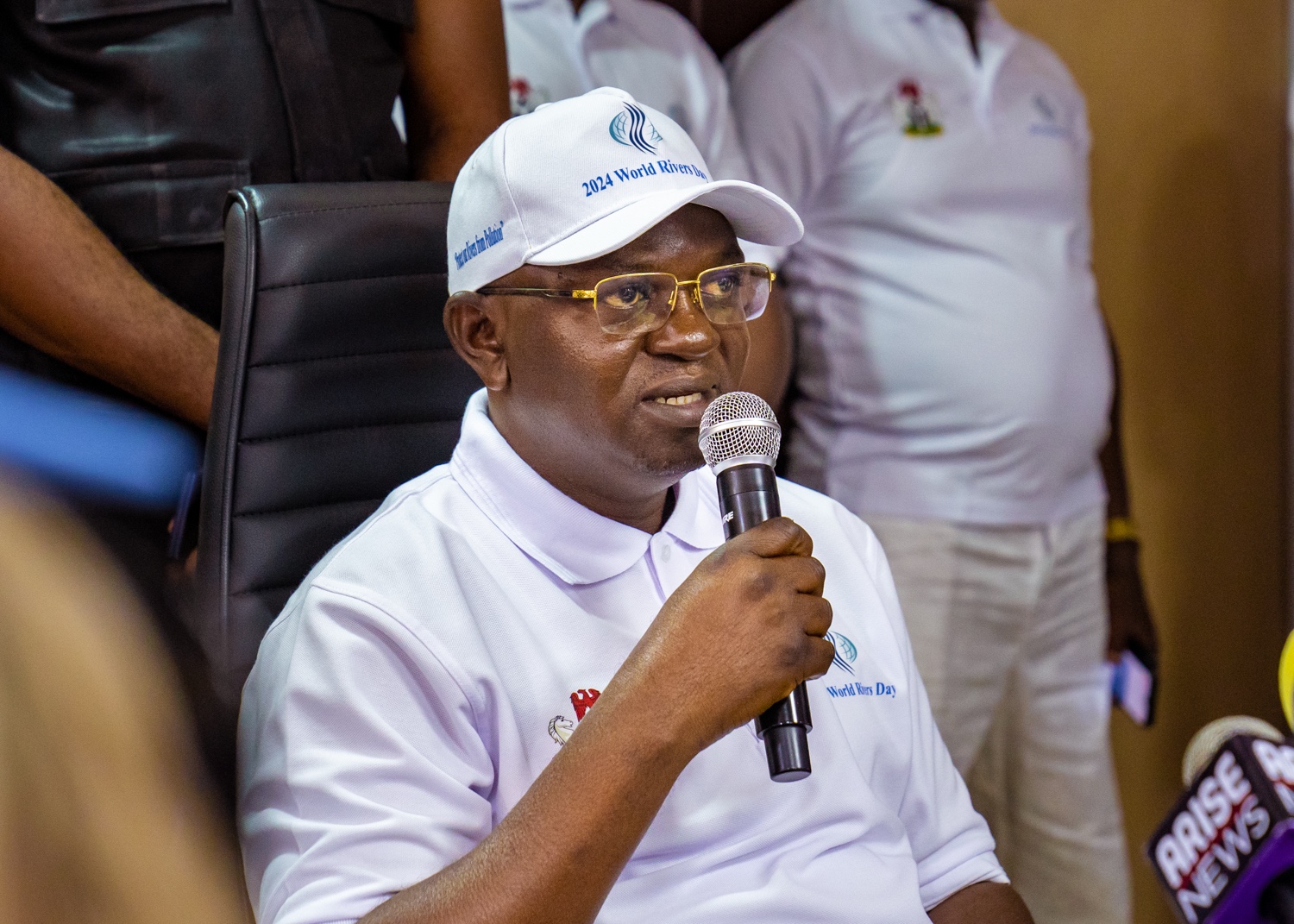
By Fatima Saka
The Honourable Minister Of Water Resources and Sanitation, Engr. Prof. Joseph Terlumun Utsev, FNSE has called upon all State Governments situated along the banks of River Benue: Adamawa, Taraba, Benue, and others to remain vigilant as the management of the Lagdo Dam in Cameroon releases water in cubic meters per second over a seven-day period.
Professor Utsev made this appeal during a ministerial press briefing on the Commemoration of World Rivers Day in Abuja on Monday.
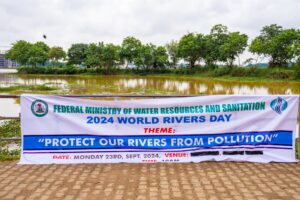
He further recommended that the states implement preparedness measures to enhance sensitization on flood mitigation, clearing of obstructed drainage channels, and relocation of individuals residing in flood-prone areas to safer locations.
The minister also reiterated that the twelve (12) River Basin Development Authorities (RBDAs) have been instructed to monitor all dams and report any incidents that could endanger the safety of lives and properties within their respective areas. “Meanwhile, the RBDAs have been instructed to observe the event with modesty while educating the general public in their respective regions on the significance of safeguarding our river courses.”
In addressing the citizens, Professor Utsev mentioned that the Mainstream Energy Solutions Limited (MESL), operator of the Kainji, Jebba, Zungeru Hydropower Plants, has been advised to notify all relevant stakeholders and Government Agencies of its annual water discharge from its Reservoirs.
In offering immediate solutions, he stated that MESL has also conducted extensive awareness campaigns in the communities residing along the flood plains.
Highlighting the sub-theme for this year’s celebration in Nigeria, Professor Utsev emphasized the timely nature of the interconnection between rivers, water, flooding, and environmental health.
“Consequently, I urge urban planners to adopt integrated approaches, recognizing the interconnectedness between flooding and sanitation to establish more resilient and sustainable communities.
“Ladies and gentlemen, it is noteworthy that extreme climatic conditions of flooding and drought are already significantly impacting the Nigerian populace. While floods are predictable and unavoidable, measures can be implemented to mitigate their effects, especially for the Benue and Niger basins.
“I would like to stress here that the current administration of President Bola Ahmed Tinubu, GCFR Renewed Hope Agenda is focused on ensuring Food Security, Jobs/Wealth Creation, inclusivity, and enhancing the socio-economic well-being of Nigerians.
“At this juncture, I affirm that the Ministry is committed to maintaining a balance between irrigation, water quality, and food production to enhance crop yield, food safety, and human health conditions.
“Additionally, it is crucial to mention that our goal of achieving an Open Defecation Free (ODF) nation by 2025 is highly attainable.
“I emphasize the necessity for key stakeholders to regard rivers as living entities entitled to fundamental rights, legal guardianship, and personhood. It is incumbent upon us to extend and enforce these rights for the well-being of watersheds and river basin States.
“Distinguished guests, ladies and gentlemen, I implore all of you to collaborate with us in disseminating this message to the public, particularly communities residing around our rivers, streams, and lakes, to educate them on the urgent need to safeguard our rivers from pollution, misuse, and extinction.
“In conclusion, as self-appointed guardians of our rivers, let us always bear in mind that our rivers are not receptacles for waste; let us refrain from polluting our rivers, discharging sewage and untreated effluents into our rivers, and engaging in Open Defecation or other detrimental practices in our rivers.
“While expressing gratitude for this year’s World Rivers Day celebration, let’s collectively strive to maintain the cleanliness of our rivers.”
Addressing the audience, the Honourable Minister of State for Water Resources And Sanitation, Bello Muhammad Goronyo Esq, emphasized the preservation of the integrity of rivers in conjunction with dams to ensure sustainable management and secure a healthy environment for future generations.
“The Minister of State emphasized that the primary water sources for dams are rivers, lakes, streams, and wetlands. Most dams are constructed on rivers utilizing their natural flows.
“This underscores the significance of this day dedicated to highlighting the importance of healthy river courses for our national development.
“There are various activities on rivers that adversely affect our dam reservoirs. These activities, whether anthropogenic, riverine, watershed-related, or climate-induced, could have severe repercussions on the design capacity and safety of our dam infrastructure.”
In his introductory remarks, Mr. Richard, P. Pheelangwah, Permanent Secretary of the Federal Ministry of Water Resources and Sanitation, stated that the theme: “The Incredible Nature, Cultural, and Recreational Values of Rivers and Streams”in our Communities.” is being celebrated by the ministry for the 2024 event in Nigeria under the Sub-theme: “Protect Our Rivers from Pollution.”
The Permanent Secretary highlighted the recent overflow of the Alau Dam, which tragically resulted in devastating floods in Maiduguri and its environs, causing loss of lives and properties.
“I pray that God Almighty will grant eternal rest to the departed souls, provide solace to their families, and assist the displaced individuals during these challenging times.
“This unfortunate incident is the reason for commemorating this year’s event with modesty to show our solidarity and empathy with our brothers and sisters in Borno State.”
Additionally, Umar Ibrahim Mohammed, Director General of the Nigeria Hydrological Services Agency, represented by Mr. Stephen Jabo, Director at NIHSA, mentioned that the flooding on River Benue is not solely caused by the water release from the Lagdo Dam. He added that the river has numerous tributaries flowing freely within the country, receiving substantial rainfall during this peak period of the rainy season in Nigeria.
“The months of July, August, and September mark the peak flooding periods in Nigeria. We are currently transitioning out of the peak rainy season.”
Moreover, the ministry commemorated the occasion by planting trees at Jabi Lake as part of the subdued celebrations, expressing sympathy for the Borno State flooding.
